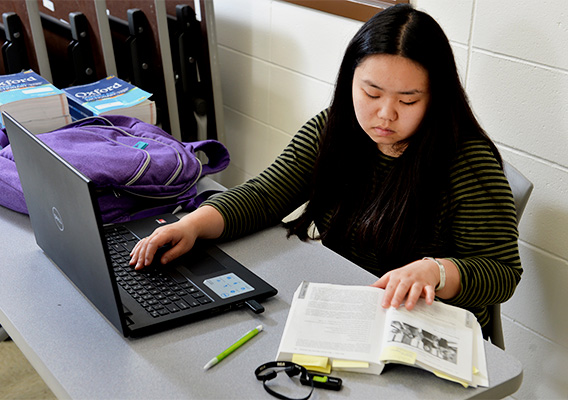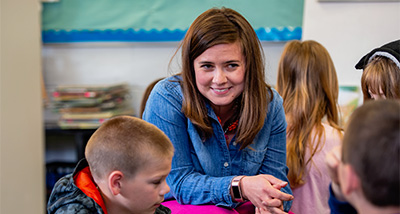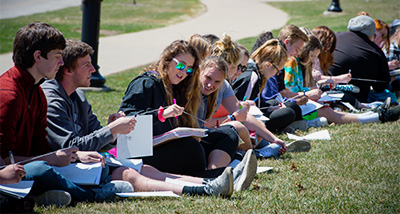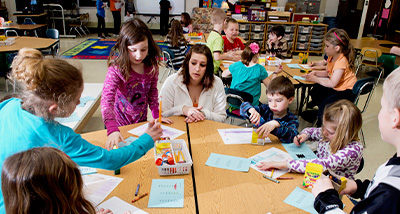
Why Study Reading?
Graduate | Education | CEBAH
The graduate Reading Program at UWRF prepares educators to meet the needs of all readers in their classrooms. You'll gain skills in effective literacy classroom methods with a focus on using assessment data to guide differentiated instruction. The program creates small cohorts of graduate students who begin their studies in the fall and become a close-knit community, sharing insights and teaching experiences while working closely with practiced instructors and teachers.
You may complete a certificate for Wisconsin reading teacher license or a master of science in education degree and Wisconsin reading specialist license. Both options meet the Wisconsin Department of Public Instruction requirements for licensure. Course curriculum follows the standards of the International Literacy Association.
Who is this program designed for?
-
Educators with at least two years of experience in elementary, middle and secondary classrooms who want to strengthen their skills in developing literacy.
-
Educators seeking to become reading teachers or reading specialists.
Program Details
-
Convenient schedule of classes with online coursework and face-to-face instruction on one Saturday per month and during the summer.
-
Small cohort of peers, learning practical teaching strategies through in depth discussions with each other and expert faculty.
-
Curriculum reflects the needs of educators who want to implement effective literacy practices into their classrooms.
-
Complete the reading teacher certification within one year or continue on to earn master's degree and reading specialist license.
Degree Requirements
Complete the following courses and other requirements to earn the MSE degree, the Wisconsin Reading Specialist license (5017) and the Wisconsin Reading Teacher license (1316).
READ 700 Foundations of Literacy, 3 credits
READ 705 Elementary Language Arts, 3 credits
READ 722 Content Area Literacy in Secondary Schools, 3 credits
READ 730 Teaching Students with Reading Difficulties, 3 credits
READ 750 Children's Literature in the Reading Program, 3 credits
READ 765 Appraisal and Intervention, 3 credits
READ 766 Administration and Supervision of the Reading Program, 3 credits
READ 770 Professional Development in Literacy, 3 credits
READ 785 Literacy Research, 3 credits
READ 786 Teacher Action Research in Literacy, 3 credits
Research Paper
Oral Comprehensive Exam
Reading Teacher License (WI 1316)
Complete the following courses to earn the Wisconsin Reading Teacher license.
READ 700 Foundations of Literacy, 3 credits
READ 705 Elementary Language Arts, 3 credits
READ 722 Content Area Literacy in Secondary Schools, 3 credits
READ 730 Teaching Students with Reading Difficulties, 3 credits
READ 750 Children's Literature in the Reading Program, 3 credits
READ 765 Appraisal and Intervention, 3 credits
This program is designed to prepare teachers for Minnesota certification in reading. However, it is the student's responsibility to ensure state licensing requirements are met. Minnesota residents may qualify for tuition reciprocity and can find more information and apply here.
In addition to the General Admission Process for graduate study at UWRF, applicants will also show that they are certified teachers with two years of regular classroom teaching experience.
NOTE: A criminal background check is not required as part of the application, but will be required for all accepted students prior to formal admission. Accepted students will receive an email from the College of Education, Business and Allied Health Associate Dean about this process. Indications of any criminal history on the background check are not considered in the application review process but may require a meeting with the college Associate Dean. Additionally, the program cannot guarantee any graduate an educational license nor job opportunities. Some licensing agencies and some school districts may choose not to consider applicants with criminal histories.
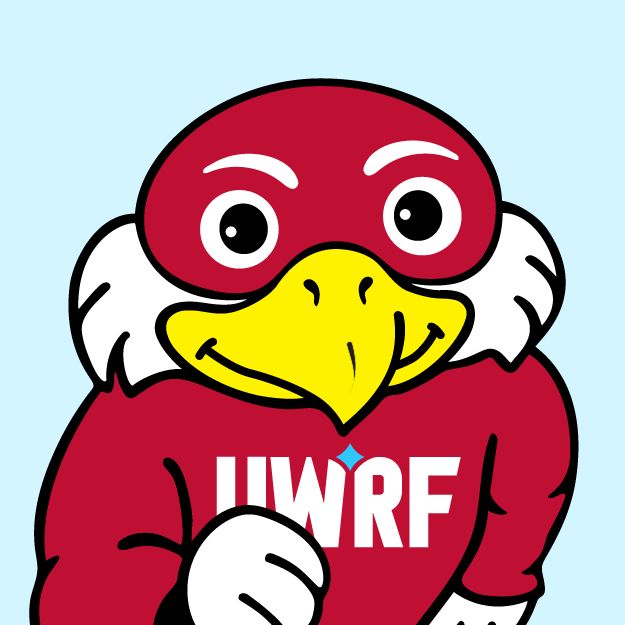
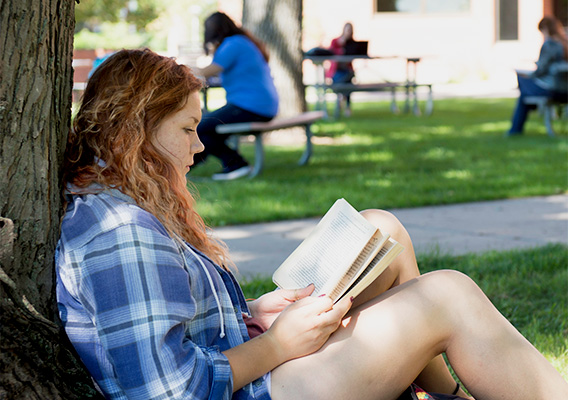
Skills and Learning Outcomes
- Develop knowledge and skills in effective literacy classroom methods.
- Gain a deep understanding of how to use assessment data to guide differentiated instruction.
- Learn the necessary skills and tools to meet the needs of all readers in a classroom.
Types of Courses
- Administration and Supervision of the Reading Program
- Appraisal and Intervention
- Children's Literature in the Reading Program
- Content Area Literacy in Secondary Schools
- Elementary Language Arts
- Foundations of Literacy
- Literacy Research
- Teacher Action Research in Literacy
- Teaching Students with Reading Difficulties
